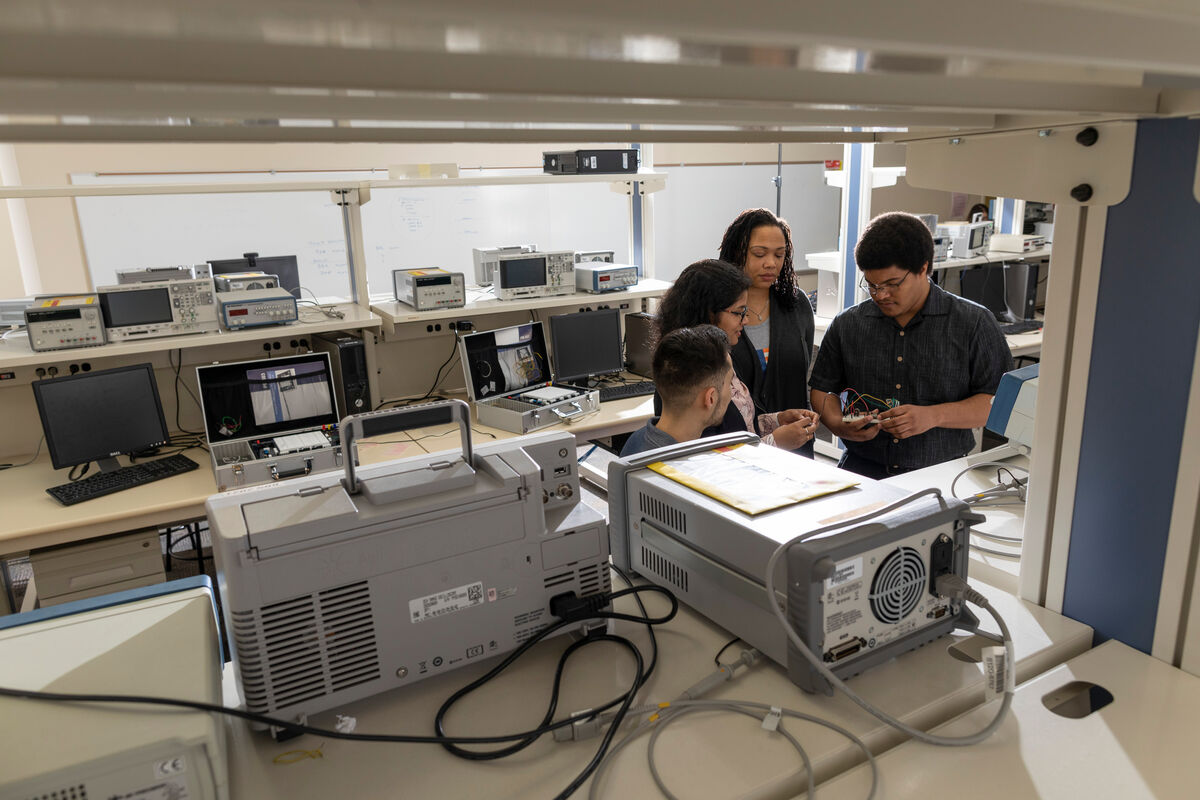The Department of Electrical and Computer Engineering at The University of Texas at Tyler offers a student-focused, hands-on approach to Undergraduate and Graduate engineering education, providing excellent preparation for success in today's high tech world. Students may choose to study at our main campus in Tyler, or they may earn a UT Tyler Electrical or Computer Engineering Bachelor of Science degree through our satellite program in the Houston Engineering Center of Houston Community College.
Electrical engineers use science, mathematics and technology coupled with critical thinking and problem-solving skills to analyze, design, construct and maintain products and provide services related to electrical and electronic devices and systems. With a degree in electrical engineering from UT Tyler, you will be well trained to work in many vital areas, including electrical circuit design, analog and digital electronics, microelectronics, computer engineering, communications, digital signal processing, control systems, power systems and energy conversion. Whether designing large electric power systems to provide energy to homes and industries or developing tiny electronic devices to save lives, an electrical engineer is afforded many opportunities for a challenging and rewarding career.
- The UT Tyler electrical engineering Bachelor of Science degree provides a strong theoretical foundation, practical engineering skills and experience in communication and teamwork, preparing students to practice as professional engineers and/or to begin graduate studies. This degree is an important qualification for those seeking employment in industry, as well as a solid foundation to begin graduate studies.
- UT Tyler's electrical engineering Master of Science degree program offers advanced instruction in two or more areas, including: electronics, power systems, controls, advanced engineering mathematics, signal processing, communications, real-time systems, computer systems, electromagnetics and power electronics.
Electrical Engineering students receive individualized instruction from faculty with diverse industrial backgrounds. Each faculty member holds an advanced terminal degree, and most have actively practiced engineering.
The Electrical Engineering program is accredited by the Engineering Accreditation Commission of ABET, https://www.abet.org. For more information, please feel free to contact Dr. Hassan El-Kishky, Chair and Professor of Electrical Engineering.
Marketable Skills
Students exit from any degree program with a variety of skills. Marketable skills are those valued by employers that can be applied in a variety of work settings, including interpersonal, cognitive, and applied skill areas. These skills can be either primary or complementary to a major and are acquired by students through education, including curricular, co-curricular, and other non-classroom activities (Texas High Education Coordinating Board, 2015).
Please follow the link to access the marketable skills outlined by the Electrical Engineering Program.
Syllabi
- Undergradate
- Graduate
Related Links
